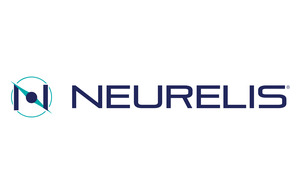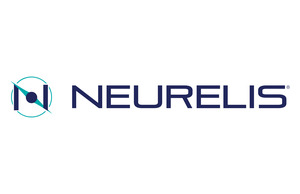- Dr. Rabinowicz and Dr. Carrazana have been instrumental in synergistically advancing novel therapies to address unmet needs in the epilepsy and broader central nervous system (CNS) communities
SAN DIEGO, May 15, 2023 /PRNewswire/ -- Neurelis, Inc., announced today the promotion of Adrian L. Rabinowicz, MD, to Chief Medical Officer and the establishment of a new leadership position of Senior Vice President, Strategic Initiatives for Enrique Carrazana, MD. This enhanced and expanded leadership team will serve a critical function to Neurelis, as the company continues to seek and leverage novel scientific approaches to improve the lives of people around the world with CNS disorders.
"Neurelis is built on a foundation of people who have a passion for progress. Dr. Rabinowicz and Dr. Carrazana exemplify this spirit and focus on advancing care for patients with epilepsy and other CNS disorders," said Neurelis CEO, Craig Chambliss. "Their combined experience in neurology as well as focus on rare diseases of the central nervous system and epilepsy is helping transform the landscape of epilepsy care and will continue to be pivotal to the success and growth of our pipeline through the clinical development and medical functions."
Dr. Adrian L. Rabinowicz joined Neurelis in 2018 and is a board-certified neurologist with over 25 years of experience in global pharmaceutical and biotechnology companies. As the former SVP of Clinical Development & Medical Affairs, Dr. Rabinowicz brought a focused vision to his role that enabled the clinical expansion of Neurelis over the years. As head of the Clinical Development & Medical Affairs (CDMA) team, Dr. Rabinowicz was responsible for the establishment of critical initiatives such as the Neurelis Neuroscience Council and the presentation of more than 100 posters, and the publication of over 35 manuscripts in peer-reviewed journals. In his new role as Chief Medical Officer, Dr. Rabinowicz will lead the evolution of the Neurelis pipeline as the company continues to develop therapies for unmet needs in epilepsy and other rare CNS disorders.
Dr. Enrique Carrazana has over 25 years of experience in drug development and the pharmaceutical industry. His passion for furthering science in epilepsy and other neuroscience disorders has advanced the Neurelis mission of transforming the lives of people with epilepsy and their care partners for the better. Since joining Neurelis in 2017, Dr. Carrazana was responsible for the management of drug development and safety programs and played a pivotal role in the trial design of the company's flagship product, VALTOCO® (diazepam nasal spray) CIV. Transitioning from Chief Medical Officer to the new Senior Vice President of Strategic Initiatives, Dr. Carrazana will have an expanded role developing unique approaches to address tough scientific and clinical challenges. He will continue to work closely with both the CDMA team and the broader leadership team.
About Neurelis
Neurelis, Inc., is a commercial-stage neuroscience company focused on the development and commercialization of therapeutics for the treatment of epilepsy and orphan neurologic disorders characterized by high unmet medical need. In 2020, the FDA approved Neurelis' VALTOCO® (diazepam nasal spray) as an acute treatment of intermittent, stereotypic episodes of frequent seizure activity (i.e., seizure clusters, acute repetitive seizures) that are distinct from an individual's usual seizure pattern in adult and pediatric patients 6 years of age and older. VALTOCO is a proprietary formulation of diazepam incorporating the science of INTRAVAIL®. Intravail's transmucosal absorption enhancement technology enables the noninvasive delivery of a broad range of protein, peptide and small-molecule drugs. In its approval of VALTOCO, the U.S. Food and Drug Administration also granted Neurelis Orphan Drug Exclusivity and recognized VALTOCO's intranasal route of administration as a clinically superior contribution to patient care over the previously approved standard-of-care treatment (a rectal gel formulation of diazepam). For more information on VALTOCO, please visit www.valtoco.com. In addition, Neurelis is developing NRL-1049 (previously known as BA-1049), an investigational, Phase I stage small molecule Rho kinase (ROCK) inhibitor, for the treatment of cerebral cavernous malformations (CCMS), a rare disorder of the central nervous system (CNS). For more information on Neurelis, please visit www.neurelis.com. For the latest scientific information on VALTOCO, please visit https://www.neurelismedicalaffairs.com/.
Important Safety Information about VALTOCO:
Indication
VALTOCO® (diazepam nasal spray) is indicated for the acute treatment of intermittent, stereotypic episodes of frequent seizure activity (ie, seizure clusters, acute repetitive seizures) that are distinct from a patient's usual seizure pattern in patients with epilepsy 6 years of age and older.
WARNING: RISKS FROM CONCOMITANT USE WITH OPIOIDS; ABUSE, MISUSE, AND ADDICTION; and DEPENDENCE AND WITHDRAWAL REACTIONS
|
Contraindications: VALTOCO is contraindicated in patients with:
- Hypersensitivity to diazepam
- Acute narrow-angle glaucoma
Central Nervous System (CNS) Depression
Benzodiazepines, including VALTOCO, may produce CNS depression. Caution patients against engaging in hazardous activities requiring mental alertness, such as operating machinery, driving a motor vehicle, or riding a bicycle, until the effects of the drug, such as drowsiness, have subsided, and as their medical condition permits.
The potential for a synergistic CNS-depressant effect when VALTOCO is used with alcohol or other CNS depressants must be considered, and appropriate recommendations made to the patient and/or care partner.
Suicidal Behavior and Ideation
Antiepileptic drugs (AEDs), including VALTOCO, increase the risk of suicidal ideation and behavior. Patients treated with any AED for any indication should be monitored for the emergence or worsening of depression, suicidal thoughts or behavior, and/or unusual changes in mood or behavior.
Glaucoma
Benzodiazepines, including VALTOCO, can increase intraocular pressure in patients with glaucoma. VALTOCO may be used in patients with open-angle glaucoma only if they are receiving appropriate therapy. VALTOCO is contraindicated in patients with narrow-angle glaucoma.
Neonatal Sedation and Withdrawal Syndrome
Use of VALTOCO late in pregnancy can result in sedation (respiratory depression, lethargy, hypotonia) and/or withdrawal symptoms (hyperreflexia, irritability, restlessness, tremors, inconsolable crying, and feeding difficulties) in the neonate. Monitor neonates exposed to VALTOCO during pregnancy or labor for signs of sedation and monitor neonates exposed to VALTOCO during pregnancy for signs of withdrawal; manage these neonates accordingly.
Risk of Serious Adverse Reactions in Infants due to Benzyl Alcohol Preservative
VALTOCO is not approved for use in neonates or infants. Serious and fatal adverse reactions, including "gasping syndrome," can occur in neonates and low-birth-weight infants treated with benzyl alcohol–preserved drugs, including VALTOCO. The "gasping syndrome" is characterized by central nervous system depression, metabolic acidosis, and gasping respirations. The minimum amount of benzyl alcohol at which serious adverse reactions may occur is not known.
Adverse Reactions
The most common adverse reactions (at least 4%) were somnolence, headache, and nasal discomfort.
Diazepam, the active ingredient in VALTOCO, is a Schedule IV controlled substance.
To report SUSPECTED ADVERSE REACTIONS, contact Neurelis, Inc. at 1-866-696-3873 or FDA at 1-800-FDA-1088 (www.fda.gov/medwatch).
Please read full Prescribing Information, including Boxed Warning.
Contacts:
Neurelis:
Brittany Bradrick, Chief Operating Officer and Chief Financial Officer, +1 858 251 2135
Media:
Glenn Silver, FINN Partners, +1 646 871 8485
SOURCE Neurelis, Inc.

WANT YOUR COMPANY'S NEWS FEATURED ON PRNEWSWIRE.COM?
Newsrooms &
Influencers
Digital Media
Outlets
Journalists
Opted In






Share this article